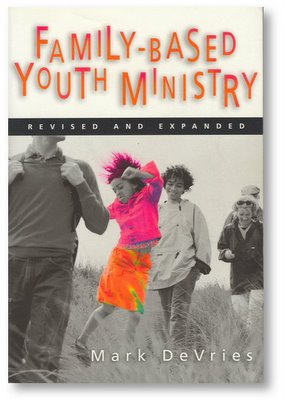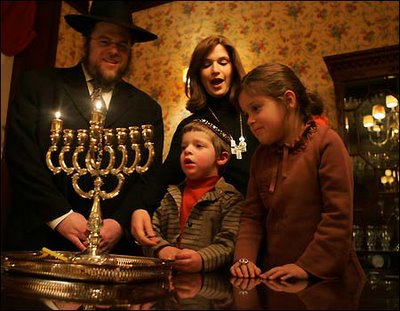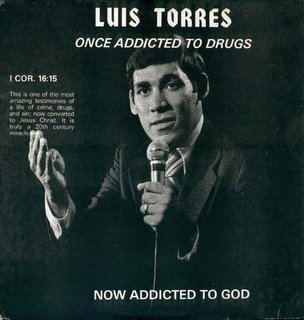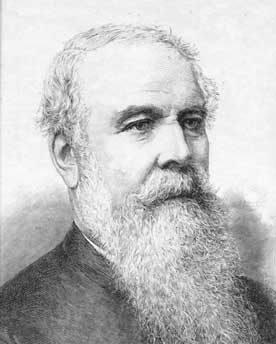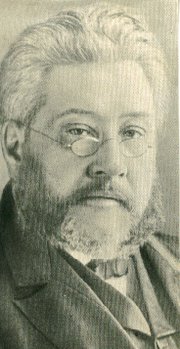Yeah, I saw the movie. Did I like it? Why of course I did, it was a very good movie for the most part. I really thought that some of Christian imagery came across nicely. We were able to see a small taste of the gospel of Christ; maybe even enough to whet the appetite for someone to pick up their Bible and attempt to find where the imagery comes from.
The most thrilling part of the movie for me? When Aslan the lion (the Christ figure) declares, "It is finished!" after the army defeated the white witch and her posse of uglies. As a Christian this was very moving to the religious affections.
Some of the things that I did not like about the movie:
1. You never grow to love Aslan before he dies. He comes and he dies quick as that. There is no connection to him emotionally.
2. Edmund never repented after Aslan was slain for his sin. He continued to defy the authority of his brother Peter. I do not like the antinomian quality of this.
3. The prophecy of the sons of Adam and the daughters of Eve did not seem to be taken very seriously by anyone. It was very down-played in the movie.
The point of this look into the film has more to do with the man behind the Lion though. It has been a few years since I have read any Lewis; I had to read some for my undergraduate degree, but I do not recall picking him up since. The one book that I remember liking the most was Till We Have Faces. Maybe that is because it was not theological in nature, but was more in the discipline of Lewis- literature.
I began to investigate some of the ideas that Lewis had regarding theology since I recall at Calvin we talked about some of his EXTREME non-evangelical ideas. I began to parouse some of his material again- and just as it was before, there is a lot that evangelicals would find to be distasteful.
The point? (Again, defending myself- I really liked the movie a lot. I enjoy his Narnia series as literature, I like some of the thoughts that he has had.) But why do evangelicals love this guy so much? I honestly think that if you put his list of doctrines infront of most evangelicals they would think that he was a hell bound heathen. (I am not commenting on his eternal state.) I find it odd that CS Lewis and JRR Tolkien (who was very Roman Catholic) have a stronger impact on American Christianity today than almost any other thinker, philosopher, theologian today.
Below is just one of the numerous articles that are available concerning his doctrine. (Some of the others will have extensive lists from his books that talk about various topics. Those are nice as well.)
 WAS C.S. LEWIS A BIBLE BELIEVER?
WAS C.S. LEWIS A BIBLE BELIEVER?
Was C.S. Lewis a Bible believer? By no means, as even Christianity Today admits. “Clive Staples Lewis was anything but a classic evangelical, socially or theologically. He smoked cigarettes and a pipe, and he regularly visited pubs to drink beer with friends. Though he shared basic Christian beliefs with evangelicals, he didn’t subscribe to biblical inerrancy or penal substitution. He believed in purgatory and baptismal regeneration” (“C.S. Lewis Superstar,” Christianity Today, Dec. 2005).
Lewis believed in prayers for the dead and purgatory and confessed his sins regularly to a priest. He was given the Catholic sacrament of last rites on July 16, 1963 (C.S. Lewis: A Biography, pp. 198, 301). Lewis denied the total depravity of man and the substitutionary blood atonement of Christ. He believed in theistic evolution and rejected the Bible as the infallible Word of God. He taught that hell is a state of mind: “And every state of mind, left to itself, every shutting up of the creature within the dungeon of its own mind--is, in the end, Hell” (Lewis, The Great Divorce, p. 65). D. Martin Lloyd-Jones warned that C.S. Lewis had a defective view of salvation and was an opponent of the substitutionary and penal view of the atonement (Christianity Today, Dec. 20, 1963). In a letter to the editor of Christianity Today, Feb. 28, 1964, Dr. W. Wesley Shrader, Lewisburg, Pennsylvania, warned that “C.S. Lewis ... would never embrace the (literal-infallible) view of the Bible” (F.B.F. News Bulletin, March 4, 1984).
Lewis lived for 30 years with Janie Moore, a woman 25 years his senior to whom he was not married. The relationship with the married woman began when Lewis was still a student at Oxford. Moore was separated from her husband. Lewis confessed to his brother Arthur that he was in love with Mrs. Moore, the mother of one of his friends who was killed in World War I. The relationship was definitely sexual in nature. See Alan Jacobs, The Narnian: The Life and Imagination of C.S. Lewis, pp. 82, 94. At age 58, Lewis married Joy Gresham, an American woman who pursued a relationship with Lewis even while she was still married to another man. According to two of Lewis’s friends, Gresham’s husband divorced her on the grounds of desertion (Roger Lancelyn Green & Walter Hooper, Light on C.S. Lewis), though it also true that he, in turn, married his Joy’s cousin.
In the book A Severe Mercy by Sheldon VanAuken, a personal letter is reproduced on page 191 in which Lewis suggests to VanAuken that upon his next visit to England that the two of them “must have some good, long talks together and perhaps we shall both get high.”
Lewis claimed that followers of pagan religions can be saved without personal faith in Jesus Christ: “But the truth is God has not told us what His arrangements about the other people are. ... There are people who do not accept the full Christian doctrine about Christ but who are so strongly attracted by Him that they are His in a much deeper sense than they themselves understand. There are people in other religions who are being led by God’s secret influence to concentrate on those parts of their religion which are in agreement with Christianity, and who thus belong to Christ without knowing it. For example a Buddhist of good will may be led to concentrate more and more on the Buddhist teaching about mercy and to leave in the background (though he might still say he believed) the Buddhist teaching on certain points. Many of the good Pagans long before Christ’s birth may have been in this position” (C.S. Lewis, Mere Christianity, HarperSanFrancisco edition, 2001, pp. 64, 208, 209).
Discussion Point:
-Everyone has an opinion about this, no need!
 PSALM 90 (Selections from the United Presbyterian Psalter, 1912)
PSALM 90 (Selections from the United Presbyterian Psalter, 1912)